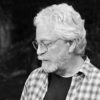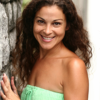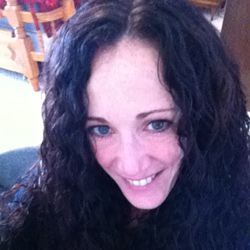by Robert Gibb
Kutztown, 1969
When we left we ascended into the light,
sun- or street-, depending. Outside steps
like stairs of the ladder, its heavenly
two-way traffic. My first semester back
from the Air Force. At 15-cents a draft,
I could spend the night for what felt like
pennies on the dollar, all on the G.I. Bill.
A horseshoe-shaped bar. The low ceiling
of tobacco smoke that spread its cirrus
above us—locals mostly, including Evie
and Althea, townie sirens bee-hived
and bluejeaned since their 1950s teens.
The neon script of beer signs lit the walls
beside Norm the bartender’s warning,
“ONLY L.C.B. CARDS EXCEPTED,”
which elicited Shorty’s sorrowful tsk.
We slathered slices of ring-bologna
with umber mustard, ate red-beet eggs
whose purples bled into golden yolks.
We were treated to a non-stop jukebox
among whose offerings were the same
two songs—Hendrix wah-wahing his way
through “All Along the Watchtower”
and Marvin Gaye’s bewildered plaints
in “I Heard it Through the Grapevine.”
Just two of the deaths blocking the way
back to then. A third: the bar-wooed lover
I saw off and on again for years
(her last house surrounded by cornfields,
whose hair was the color of their silk).
A letter sent to me in care of the Cellarette
actually got there, addressed by a friend
from Texas, who had misplaced my own.
Kuttstown his misspelling. First Street,
which didn’t exist. The place a cynosure
all that winter into spring. I even got
a big hug from Shorty himself one day:
“I love you, you goddamned hippie,”
which I wasn’t really, though I let it pass,
heavened at the foot of the ladder.

Robert Gibb’s books include After, which won the 2016 Marsh Hawk Press Poetry Prize, and Among Ruins, which won Notre Dame’s Sandeen Prize in Poetry for 2017. Other awards include a National Poetry Series title (The Origins of Evening), two NEA Fellowships, a Best American Poetry and a Pushcart Prize.
 Katarina Boudreaux is a New Orleans based author, musician, dancer, and teacher. Her first novel, Platform Dwellers, is available from Owl Hollow Press. Alexithymia is available from Finishing Line Press and Anatomy Lessons from Flutter Press.
Katarina Boudreaux is a New Orleans based author, musician, dancer, and teacher. Her first novel, Platform Dwellers, is available from Owl Hollow Press. Alexithymia is available from Finishing Line Press and Anatomy Lessons from Flutter Press. John Nizalowski is the author of four books: the multi-genre work Hooking the Sun; two poetry collections, The Last Matinée and East of Kayenta; and Land of Cinnamon Sun, a volume of essays. Nizalowski has also published widely in literary journals, most notably Under the Sun, Weber Studies, Puerto del Sol, Slab, Measure, Digital Americana, and Blue Mesa Review. Currently, he teaches creative writing, composition, and mythology at Colorado Mesa University.
John Nizalowski is the author of four books: the multi-genre work Hooking the Sun; two poetry collections, The Last Matinée and East of Kayenta; and Land of Cinnamon Sun, a volume of essays. Nizalowski has also published widely in literary journals, most notably Under the Sun, Weber Studies, Puerto del Sol, Slab, Measure, Digital Americana, and Blue Mesa Review. Currently, he teaches creative writing, composition, and mythology at Colorado Mesa University.